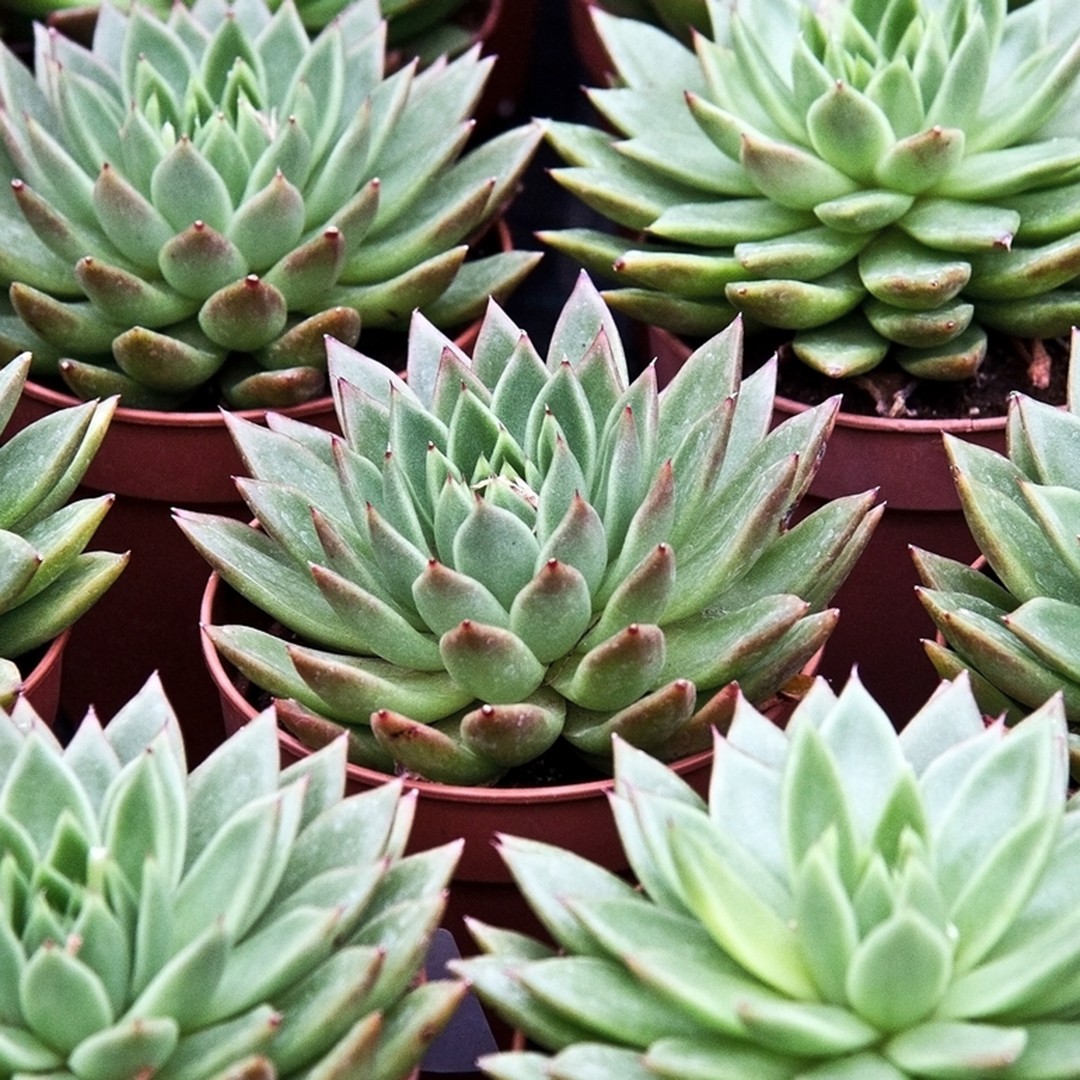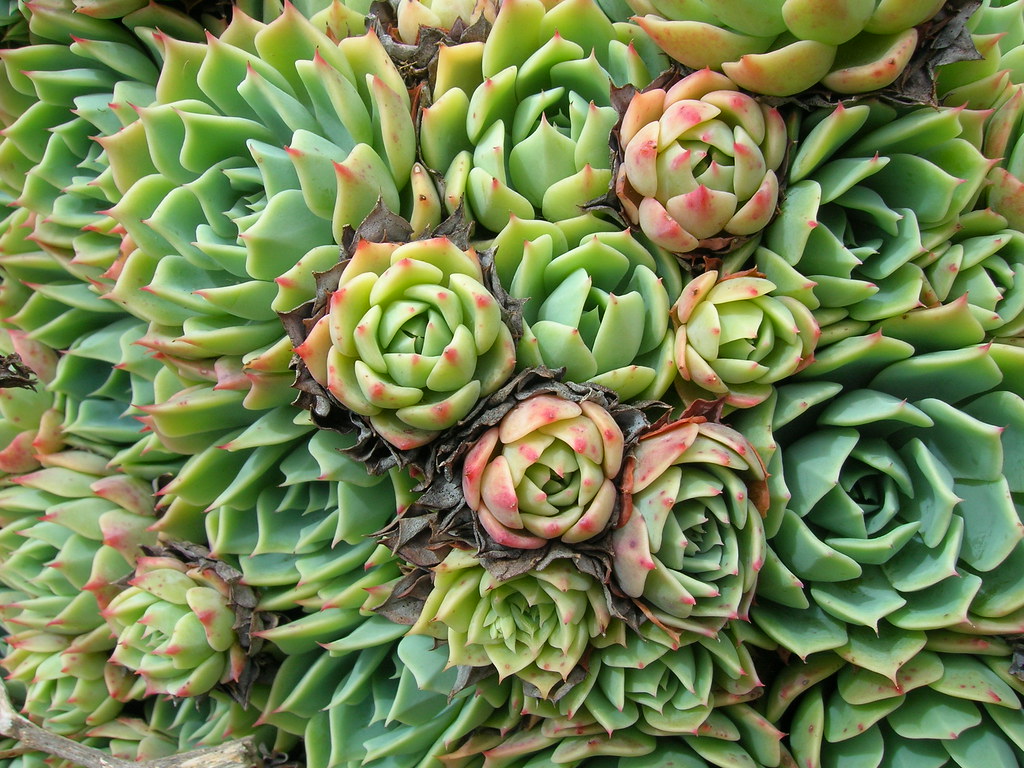How to Water Lipstick echeveria? (Frequency, Techniques, and Quantity)

Echeveria Magic Red Echeveria, Red, Succulents
Echeveria rosea. Lindl. Synonyms [1] Cotyledon roseata Baker. Courantia echeverioides Lem. Courantia rosea (Lindl.) Lem. Echeveria rosea is a species of flowering plant in the family Crassulaceae, native to Mexico. [1] A succulent, it has gained the Royal Horticultural Society 's Award of Garden Merit.

Echeveria Shaviana Potscapes
Last updated on August 25th, 2023 at 11:58 am. Echeveria rosea, also known as Rose Echeveria, is a lovely succulent plant that looks great in both containers and landscape beds. This plant has become increasingly popular among home gardeners because of its unique blue-green color, low maintenance requirements, and ease of propagation.. Rose Echeveria is one of the most popular succulents.

Echeveria 'Red (JPEG Image, 1600 × 1416 pixels) Scaled
Let us count the ways…. Echeverias are rose-shaped succulents that are easy to care for, drought-resistant, and come in a beautiful variety of colors and sizes. The plant flowers readily (mostly coral-pink, yellow-tipped, or reddish-orange blooms) and grows quickly compared to other succulents, as it functions well as ground cover does well.

Echeveria Rosularis Succulents Australia Sales
Discover the mesmerizing beauty of Echeveria Rosea! Uncover the secrets to growing and caring for this stunning succulent. Click now to be captivated by its charm!

Echeveria Luna Rossa Succulents Australia Sales
Succulents tend to grow toward the light source. So to keep your Echeveria symmetrical, it is recommended to turn the pot at least once or twice a week. If your Echeveria begins to stretch, just continue growing it, then start fresh in the Spring by simply cutting the top and rooting it as a new rosette. 2. Watering.

Echeveria 'Wine Red' Surreal Succulents
Allow the leaf to cauterize for at least a day, then place the cut leaf on the soil surface. Within a few weeks, the leaf will root and produce a new rosette. If your echeveria starts to look spindly, you can revive it and create two or more new plants in the process. First remove the plant from its soil.

Echeveria Devotion showing off her vibrant red colors! succulents
As the plant ages the central stem grows longer and longer and starts to lose vigour, causing the pretty rosette to shrink. Use a sharp blade to carefully sever the head (rosette) just below the lowest leaf on the stem. Rest the severed head in light shade for a week or two until it has calloused and is ready to be replanted.

Echeveria Big Red 17/6/17 Echeveria, Winter garden, Succulents
Echeveria 'Rosea': A ruffled rosette of mysterious origins (not to be confused with the species, E. rosea).This mermaid colored succulent can shift between lilac, pink, and blue-green tones depending on how much sun it gets. It can grow up to 6.0" wide and gets wavier as it matures.. Echeveria need bright sunlight to maintain their colors and compact rosette form.

Echeveria tolimanensis Dark Red (2" Pot) Little Prince To Go
Echeveria 'Rosea' needs 0.8 cups of water every 12 days when it doesn't get direct sunlight and is potted in a 5.0" pot. Use our water calculator to personalize watering recommendations to your environment or download Greg for more advanced recommendations for all of your plants. Water 0.8 cups every. 12 days.

Echeveria 'Ruffles Red' (L) Surreal Succulents
Common Name: La roseta. Scientific Name: Echeveria laui. Type: Succulent. Origin: Mexico. Habitat: Mountain slopes. Size: 6 inches (15 cm) tall and 5 inches (12.5 cm) wide. Toxicity: Non-toxic to pets and humans. Colors: Blueish-grey to pink leaves. Blooms: Peachy-rose flowers in stalk during summer to fall.

How to Water Lipstick echeveria? (Frequency, Techniques, and Quantity)
Take care to only water once the soil is completely dry since Echeverias do not like sitting in water for too long. During winter months, reduce watering to once every three to four weeks to prevent root rot. Echeverias go dormant during the winter. When watering, water the soil at the base of the plant.

Echeveria 'Luna Rossa ' por ECHEVERIAN Air Magic, Cactus Flowers
Echeveria Rosea is a small rosette-forming succulent belonging to the genus Echeveria. The plant is popularly grown for its foliage. The 5 to 8 inches rosette is usually greyish-green in color with pink ruffled edges. The mature plant blooms flowers with long stalk-like inflorescence. In addition, the plants produce attached baby plants or.

Echeveria Crassulaceae Echeveria Crassulaceae (maybe hybri… Flickr
Water your echeveria when about 1" (2.5 cm) of the soil on the top is dry. Pour water through the soil until it drains out of the bottom of the pot. After you have done this, don't water again until the soil on the top has dried out. Always remember to water the soil, not the leaves.

Echeveria cv (Echeveria pallida x Echeveria colada) gardeningcolada
When planting this succulent type in a garden, make sure it gets sunlight. Full to partial sun is the best for its growth. It is better to grow outdoor rather than indoor. This type of succulent prefers a warm climate. It can survive at zone 10a-11b which is around -1.1°C (30 °F). If you live in a cold area, it is better to plant Dusty Rose.

Echeveria 'Silveron Red' World of Succulents Echeveria, Red
Prefers full sun. Can be grown outdoor. Grows 30 cm (12″) tall. Grows up to 60 cm (24″) wide. Can die easily if overwatered see: How to Water Succulent Plants. Does not handle cold well. Prefers Zone 10a-11b -1.1°C (30°F) Best propagated by leaves, cuttings, or seeds. Flowers are yellow.

Echeveria 'Luna Rossa' Echeveria, Succulent gardening, Planting
Mist the soil, and cover the pot until the new plant sprouts. Place it in a sunny location—but avoid direct sunlight. Once roots have developed (you will see new growth), water sparingly as you would with a mature succulent. After about a month, a tiny rosette will begin to develop at the end of the leaf.